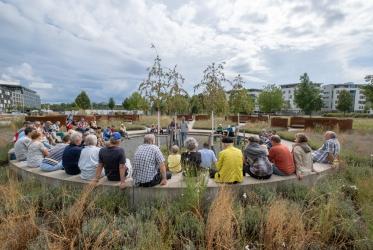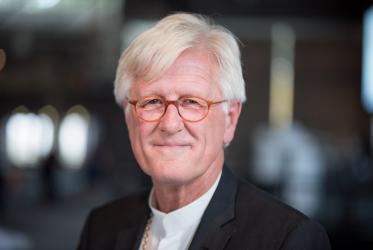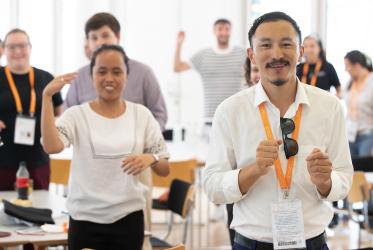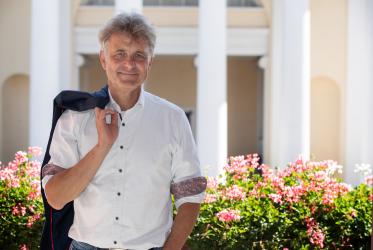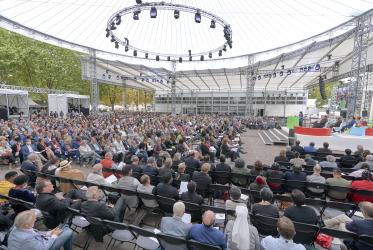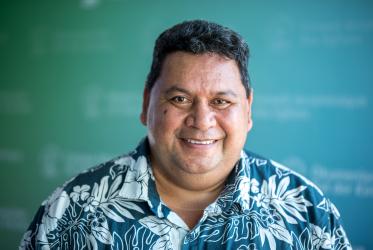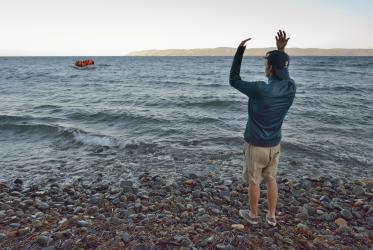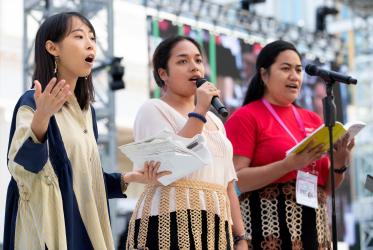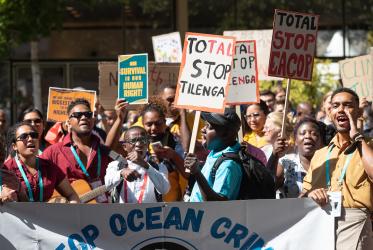Displaying 61 - 80 of 223
15 September 2022
Christ’s Love (Re)moves Borders – GETI 2022 in images
13 September 2022
Reflections from GETI underscore friendship coupled with knowledge
13 September 2022
Aspiring therapist opens his mind to different beliefs
13 September 2022
When guests became citizens of Karlsruhe
12 September 2022
From hostility to hospitality: Closing prayers at Karlsruhe
09 September 2022
Bishop Dr Heinrich Bedford-Strohm reflects on new role as moderator
09 September 2022
Dear future steward
08 September 2022
Water as a divine gift, and justice issue
08 September 2022
Ukraine: Responding to humanitarian need
08 September 2022
Harmonies of unity: Wednesday morning prayers
07 September 2022
The earth is the LORD's… and the Lord is claiming it back
07 September 2022
Förderung der Menschenwürde durch Kunst
07 September 2022
Multireligiöser Einsatz für das Klima: Nicht wirklich mehr viel Zeit
07 September 2022
